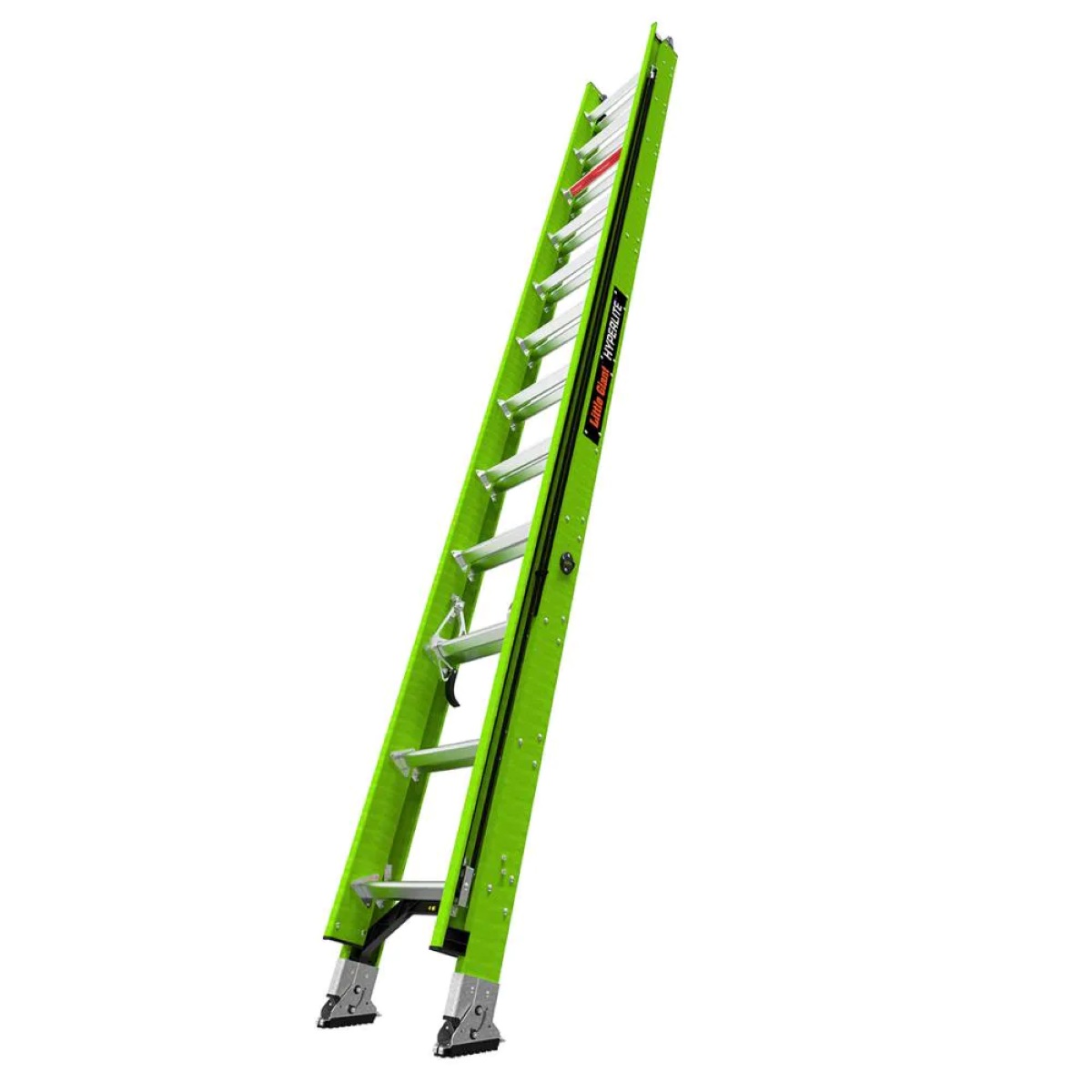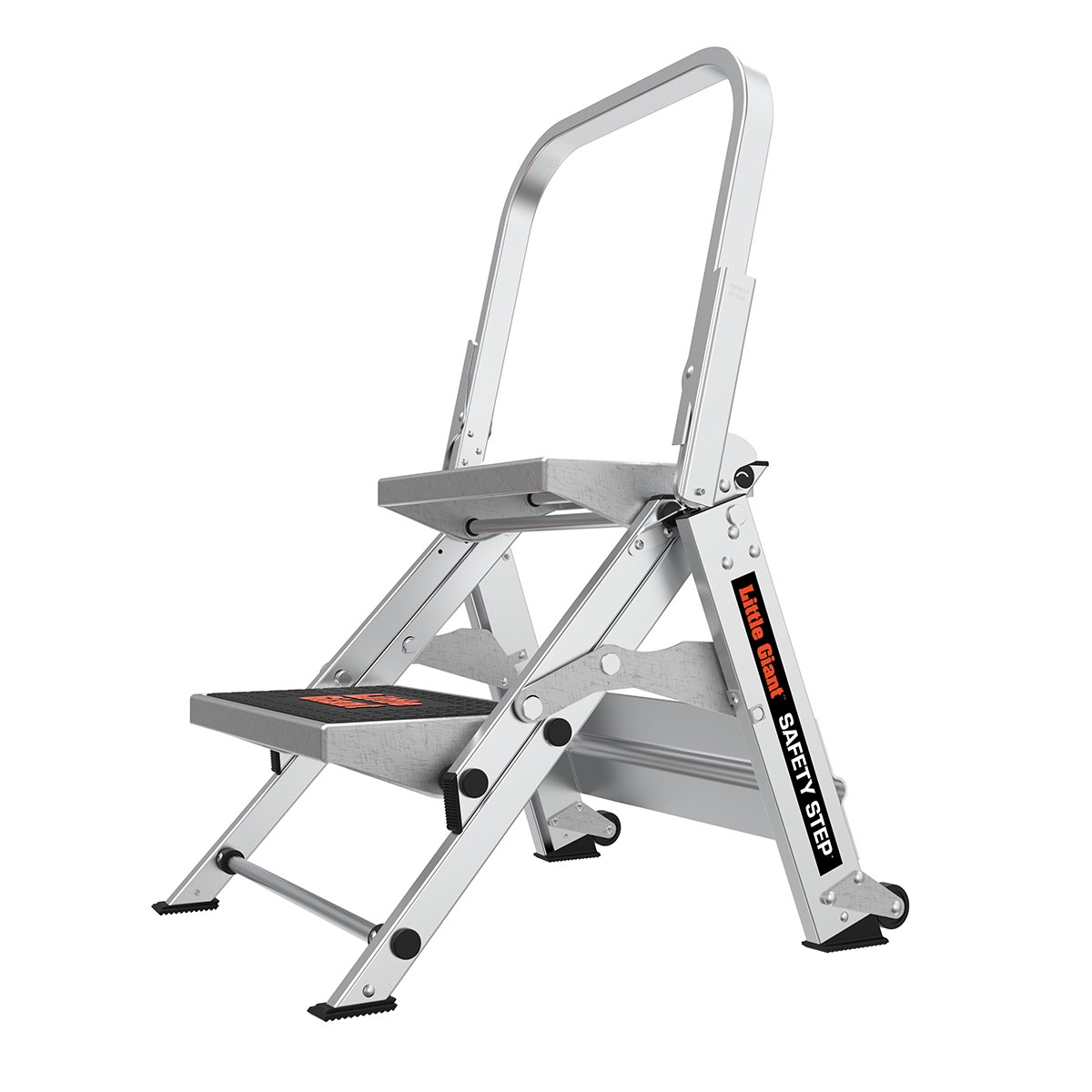

Articles
How Much Does A 24 Ft Ladder Weigh
Modified: January 20, 2024
Discover the weight of a 24 ft ladder and other insightful articles on various topics. Expand your knowledge with our informative articles.
(Many of the links in this article redirect to a specific reviewed product. Your purchase of these products through affiliate links helps to generate commission for Storables.com, at no extra cost. Learn more)
Introduction
A ladder is a must-have tool for various tasks, whether it’s reaching high places or working on construction projects. When it comes to choosing the right ladder, one important consideration is its weight. In this article, we will specifically explore the weight of a 24 ft ladder.
Before we dive into the details, it’s essential to understand that the weight of a ladder can vary depending on various factors. These factors include the materials used in its construction, the type of ladder, and any additional features it may have.
In this article, we will discuss the different materials commonly used in the construction of 24 ft ladders, including aluminum, fiberglass, and steel. We will explore the weight of each material and compare the differences. Additionally, we will also factor in any additional features that may affect the overall weight.
By the end of this article, you will have a better understanding of the factors that contribute to the weight of a 24 ft ladder, allowing you to make an informed decision when choosing the right ladder for your needs.
Key Takeaways:
- Aluminum ladders are the lightest option for a 24 ft ladder, weighing between 40 to 60 pounds. They offer portability and ease of handling, making them ideal for tasks that require frequent movement.
- Fiberglass ladders, weighing between 50 to 80 pounds, provide superior strength, durability, and electrical insulation properties. They are suitable for heavy-duty tasks and environments with potential electrical hazards.
Read more: How Much Does A 28 Ft Ladder Weigh
Factors Affecting Weight of a 24 Ft Ladder
When it comes to the weight of a 24 ft ladder, several factors come into play. Understanding these factors will give you insight into why different types of ladders can vary in weight. Let’s explore these factors in more detail:
- Material: The material used in the construction of the ladder is one of the most significant factors that determine its weight. Different materials, such as aluminum, fiberglass, or steel, have varying densities and overall weights.
- Type of ladder: The type of ladder, such as a step ladder or an extension ladder, can affect the weight as well. Each type has its own design and structure, which can contribute to a difference in weight.
- Load capacity: The load capacity of the ladder, which refers to the maximum weight it can safely support, can also influence its overall weight. Ladders with higher load capacities often incorporate additional supportive features, such as reinforced steps or frame, which can increase the weight.
- Construction design: The design of the ladder, including the number of steps or rungs, the thickness of the side rails, and the overall stability, can all play a role in determining its weight. Ladders with intricate designs or additional safety features may be heavier as a result.
- Additional features: Some ladders may have extra features like tool trays, handrails, or a platform at the top. These additional features can contribute to the weight of the ladder.
It’s important to consider these factors when selecting a ladder, as the weight can impact its portability, ease of use, and overall sturdiness. It’s crucial to find a balance between a ladder that is lightweight enough to transport but still sturdy enough to handle the intended workload.
Now that we have explored the factors that can affect the weight of a 24 ft ladder, let’s dive deeper into the specific materials commonly used in the construction of such ladders.
Materials Used in Construction
When it comes to the construction of 24 ft ladders, three primary materials are commonly used: aluminum, fiberglass, and steel. Each material has its own unique characteristics and affects the weight and overall performance of the ladder.
1. Aluminum: Aluminum ladders are a popular choice due to their lightweight nature. They are known for being corrosion-resistant, durable, and easy to handle. Aluminum ladders are typically lighter compared to ladders made from other materials, making them more portable and manageable for various tasks. The weight of a 24 ft aluminum ladder can range from 40 to 60 pounds, depending on its design and load capacity.
2. Fiberglass: Fiberglass ladders are known for their excellent electrical insulation properties, making them a safer choice in environments where electrical hazards may be present. Fiberglass ladders are generally heavier than aluminum ladders due to the nature of the material. A 24 ft fiberglass ladder can weigh anywhere from 50 to 80 pounds, depending on its load capacity and design.
3. Steel: Steel ladders are known for their exceptional strength and durability. They are commonly used in heavy-duty industrial applications or construction sites where a sturdy and robust ladder is required. Steel ladders are generally the heaviest option due to the density of the material. A 24 ft steel ladder can weigh around 70 to 100 pounds, depending on its load capacity and design.
It’s important to consider the pros and cons of each material when choosing a ladder. While aluminum ladders are lightweight and easy to transport, they may not be suitable for heavy-duty tasks that require a higher load capacity. On the other hand, fiberglass and steel ladders offer superior strength but can be heavier and less portable.
When deciding on the material for your 24 ft ladder, consider the specific requirements of your tasks, the frequency of use, and the desired durability. Evaluating these factors will help you determine which material is most suitable for your needs.
Now that we have explored the materials used in ladder construction and their potential impact on weight, let’s delve into the specific weight ranges of aluminum, fiberglass, and steel 24 ft ladders.
Weight of Aluminum 24 Ft Ladder
Aluminum ladders are a popular choice due to their lightweight nature and durability. The weight of an aluminum ladder is one of its notable advantages, making it easy to transport and maneuver. When it comes to a 24 ft aluminum ladder, the weight can vary based on factors such as design, load capacity, and additional features.
A typical 24 ft aluminum ladder can weigh between 40 to 60 pounds. This weight range provides a good balance between stability and portability, allowing users to easily transport and set up the ladder for various tasks. Ladders on the lighter end of the spectrum are often easier to carry and maneuver, while those on the heavier end may offer greater stability and a higher load capacity.
It’s important to consider the load capacity of an aluminum ladder when assessing its weight. Load capacity refers to the maximum weight that the ladder can safely support. Higher load capacity ladders often feature additional reinforcement, such as stronger side rails or wider steps, which can contribute to a slightly higher weight.
Manufacturers of aluminum ladders strive to strike a balance between weight and strength, ensuring that their products meet the necessary safety standards. This allows users to confidently carry out various tasks while benefiting from the lightweight and durable nature of aluminum ladders.
When considering an aluminum 24 ft ladder, it’s essential to evaluate your specific needs and tasks. If you require a ladder for lightweight and occasional use, a lighter aluminum ladder may be suitable. On the other hand, if you anticipate heavy-duty use or require a higher load capacity, opting for a slightly heavier aluminum ladder with additional reinforcement may be advisable.
Now that we have explored the weight of an aluminum 24 ft ladder, let’s move on to discussing the weight range of fiberglass ladders of the same height.
Weight of Fiberglass 24 Ft Ladder
Fiberglass ladders are known for their strength, durability, and electrical insulation properties. They are a popular choice for tasks that involve potential electrical hazards or require a sturdy and reliable ladder. When it comes to the weight of a 24 ft fiberglass ladder, factors such as design, load capacity, and additional features can influence the overall weight.
A typical 24 ft fiberglass ladder can weigh between 50 to 80 pounds. Compared to aluminum ladders, fiberglass ladders are generally slightly heavier due to the nature of the material. However, they offer superior strength and durability that can withstand heavy-duty use and provide a higher load capacity.
One essential consideration when assessing the weight of a fiberglass ladder is its intended use. Recommended for tasks that involve electrical work or work in environments with potential electrical hazards, fiberglass ladders provide enhanced safety. The additional weight is a trade-off for the added strength and electrical insulation properties that fiberglass offers.
Fiberglass ladders often feature reinforced side rails, wider steps, and sturdy rungs, which contribute to their weight. These additional features are designed to provide stability and load-bearing capacity, ensuring the ladder can safely support the user and any necessary equipment.
When choosing a 24 ft fiberglass ladder, it’s important to evaluate your specific needs and the tasks you will be performing. Consider the load capacity required, the frequency of use, and the overall durability needed for your work environment. This will help you determine which weight range is most suitable for your specific requirements.
Ultimately, the weight of a fiberglass ladder should be viewed in the context of its exceptional strength and safety features. The added weight is a reflection of the ladder’s robust construction and its ability to withstand demanding tasks.
Now that we have discussed the weight of a fiberglass 24 ft ladder, let’s move on to exploring the weight range of a steel ladder of the same height.
When considering the weight of a 24 ft ladder, it’s important to factor in the material it’s made of. Aluminum ladders are generally lighter than fiberglass ladders of the same size. Always check the manufacturer’s specifications for the exact weight of the ladder you are considering.
Read more: How Much Does A Ladder Weigh
Weight of Steel 24 Ft Ladder
Steel ladders are known for their robustness and strength, making them an ideal choice for heavy-duty tasks and industrial environments. When it comes to the weight of a 24 ft steel ladder, it is important to understand that steel is a denser material compared to aluminum or fiberglass. As a result, steel ladders tend to be heavier than their counterparts.
A typical 24 ft steel ladder can weigh around 70 to 100 pounds. This weight range is noticeably higher compared to aluminum or fiberglass ladders, primarily due to the density of steel. The added weight reflects the sturdy construction and durability that steel ladders offer.
Steel ladders are designed to withstand rigorous use and provide exceptional stability. The thicker and stronger side rails, rungs, and steps contribute to the weight of the ladder. The additional weight provides reassurance that the ladder can handle heavy loads and withstand demanding work conditions.
When considering a steel 24 ft ladder, it’s essential to evaluate your specific needs and tasks. Steel ladders are often found in industrial settings or construction sites where durability and load-bearing capacity are crucial. If you require a ladder for heavy-duty tasks or if you need to carry or transport heavier items while using the ladder, a steel ladder may be the suitable choice.
It’s important to keep in mind that the weight of a steel ladder may make it less portable compared to aluminum or fiberglass alternatives. However, the extra weight provides a trade-off in terms of stability, durability, and load-bearing capability.
When selecting a steel ladder, be sure to consider the load capacity required for your specific tasks, the overall strength needed, and the durability required for your work environment. This will help you determine which weight range is most suitable for your requirements.
Now that we have explored the weight of a steel 24 ft ladder, let’s move on to comparing the weight differences among aluminum, fiberglass, and steel 24 ft ladders.
Comparison of Weight Among Different Types
When it comes to choosing the right ladder, understanding the weight differences among different types is essential. Let’s compare the weights of aluminum, fiberglass, and steel 24 ft ladders:
- Aluminum: Aluminum ladders are the lightest option among the three types. A 24 ft aluminum ladder typically weighs between 40 to 60 pounds. The lightweight nature of aluminum makes it easy to transport and maneuver, making it ideal for tasks that require frequent movement or portability.
- Fiberglass: Fiberglass ladders are generally heavier than aluminum ladders due to the dense nature of the material. A 24 ft fiberglass ladder can weigh between 50 to 80 pounds. While fiberglass ladders may not be as lightweight as aluminum ladders, they offer superior strength, durability, and electrical insulation properties, making them suitable for heavy-duty tasks.
- Steel: Steel ladders are the heaviest option among the three types. A 24 ft steel ladder can weigh around 70 to 100 pounds. The weight of a steel ladder is a result of the robust construction and enhanced load-bearing capacity. Steel ladders are commonly used in industrial environments or for heavy-duty tasks that require maximum strength and durability.
When deciding which ladder is right for your needs, consider the balance between weight and the specific requirements of your tasks. Aluminum ladders are ideal for lightweight and portable use, while fiberglass ladders offer a compromise between weight and durability. Steel ladders provide ultimate strength and stability, but they can be less portable due to their heavier weight.
It’s important to evaluate factors such as load capacity, frequency of use, and specific work conditions when choosing the appropriate ladder for your needs. By considering these factors and the weight differences among various ladder types, you can make an informed decision that meets your specific requirements.
Now that we have compared the weight differences among aluminum, fiberglass, and steel 24 ft ladders, let’s explore any additional features that can affect the overall weight of a ladder.
Additional Features That Can Affect Weight
When selecting a ladder, it’s important to consider any additional features that may affect its overall weight. These features can enhance the functionality and safety of the ladder but may contribute to an increase in weight. Let’s explore some common additional features that can affect ladder weight:
- Platform: Some ladders are equipped with a platform at the top, providing a larger and more stable surface for users to stand on. The inclusion of a platform can add weight to the ladder but offers added comfort and stability, especially for tasks that require longer periods of standing.
- Tool Tray: Many ladders come with a built-in tool tray, allowing users to store tools and equipment within easy reach. The addition of a tool tray can add some weight to the ladder, but it provides convenience by eliminating the need to climb up and down the ladder to retrieve tools.
- Handrails: Some ladders feature handrails on one or both sides, providing additional support and stability when ascending or descending the ladder. Handrails are commonly found on step ladders or ladders designed for heightened safety. The inclusion of handrails may increase the weight of the ladder but offers added peace of mind and support.
- Safety Features: Ladders may incorporate various safety features such as anti-slip steps, non-skid feet, or safety locks. These safety features are designed to prevent accidents and provide a more secure usage experience. While they can increase the weight of the ladder, they play a crucial role in ensuring user safety.
It’s important to consider the specific needs of your tasks and the level of convenience and safety you require when evaluating additional ladder features. While these features may contribute to an increase in weight, they can offer significant advantages in terms of functionality and safety.
When choosing a ladder, strike a balance between the weight, the specific features needed for your tasks, and the overall reliability and stability of the ladder. By considering these factors, you can select a ladder that meets your requirements and provides a safe and efficient working experience.
Now that we have explored the additional features that can affect ladder weight, let’s conclude our discussion on the weight factors of a 24 ft ladder.
Conclusion
Choosing the right ladder involves considering various factors, with weight being a significant consideration. In this article, we have explored the weight factors of a 24 ft ladder, focusing on the materials used in construction, including aluminum, fiberglass, and steel.
Aluminum ladders are the lightest option, weighing between 40 to 60 pounds. They are portable and easy to handle, making them suitable for tasks that require frequent movement. Fiberglass ladders, weighing between 50 to 80 pounds, offer superior strength, durability, and electrical insulation properties. They are ideal for heavy-duty tasks and environments with potential electrical hazards. Steel ladders, the heaviest option weighing around 70 to 100 pounds, provide maximum strength and load-bearing capacity, making them suitable for industrial and heavy-duty applications.
Additional features can also affect the overall weight of a ladder but provide added functionality and safety. These features include platforms, tool trays, handrails, and various safety measures. Evaluating the specific needs of your tasks and the level of convenience and safety required is crucial when considering the presence of these additional features.
Ultimately, the weight of a ladder is an important consideration as it impacts portability, stability, and ease of use. It’s important to strike a balance between a ladder that is lightweight enough to transport and maneuver effectively while still being sturdy enough to handle the workload at hand.
We hope this article has provided you with valuable insights into the factors that affect the weight of a 24 ft ladder. By understanding these factors, including materials, additional features, and the intended use of the ladder, you can make an informed decision and choose a ladder that best suits your needs.
Remember to always prioritize safety when working with ladders. Follow the manufacturer’s instructions for safe usage and ensure that the ladder is in good condition before each use. By doing so, you can complete your tasks efficiently and safely, regardless of the weight of the ladder you choose.
Frequently Asked Questions about How Much Does A 24 Ft Ladder Weigh
Was this page helpful?
At Storables.com, we guarantee accurate and reliable information. Our content, validated by Expert Board Contributors, is crafted following stringent Editorial Policies. We're committed to providing you with well-researched, expert-backed insights for all your informational needs.















0 thoughts on “How Much Does A 24 Ft Ladder Weigh”